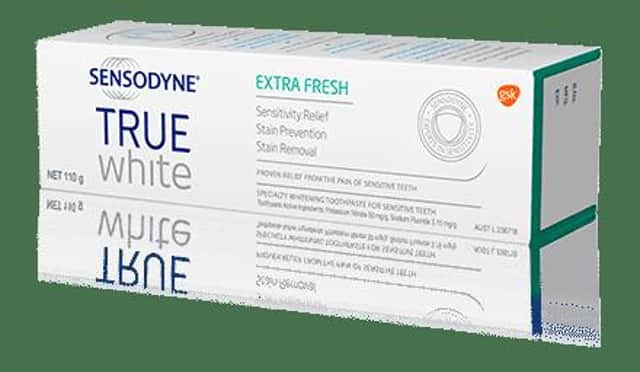Toothpaste ad not whiter than white


A Sensodyne toothpaste ad has been banned for "misleading" consumers that it whitened teeth.
Watchdogs upheld a rival's complaint there was no evidence its True White product was any more effective than non whitening brands.
Advertisement
Hide AdAdvertisement
Hide AdMakers GlaxoSmithKline (GSK) claimed the formulation was specially developed for people with sensitive teeth, and prevented and removed stains to restore the natural colour.
They said the toothpaste whitened through the chemical cleaning action of sodium tripolyphosphate (STP), rather than dental abrasives common in other whitening toothpastes.
But the Advertising Standards Authority said the ad, which appeared on Sensodyne's website, was misleading, unsubstantiated and exaggerated.
They said it "must not appear again in its current form."
They added: "We told GSK not to mislead consumers by implying Sensodyne True White was perceptibly more effective at whitening teeth than other Sensodyne non-whitening toothpastes, unless they held adequate evidence that it was."
Advertisement
Hide AdAdvertisement
Hide AdThe ad featured an image of the toothpaste alongside its outer packaging, with the brand name 'TRUE White' visible on both.
Cleaning claims
The headline stated 'Now you can have sensitive tooth care and whiter teeth*', with the asterisked qualification '*With twice daily brushing' underneath.
It said Sensodyne True White was ten times less abrasive than many everyday whitening toothpastes.
Rivals Colgate said the toothpaste's whitening effect was not greater than that of standard non-whitening products.
Advertisement
Hide Ad